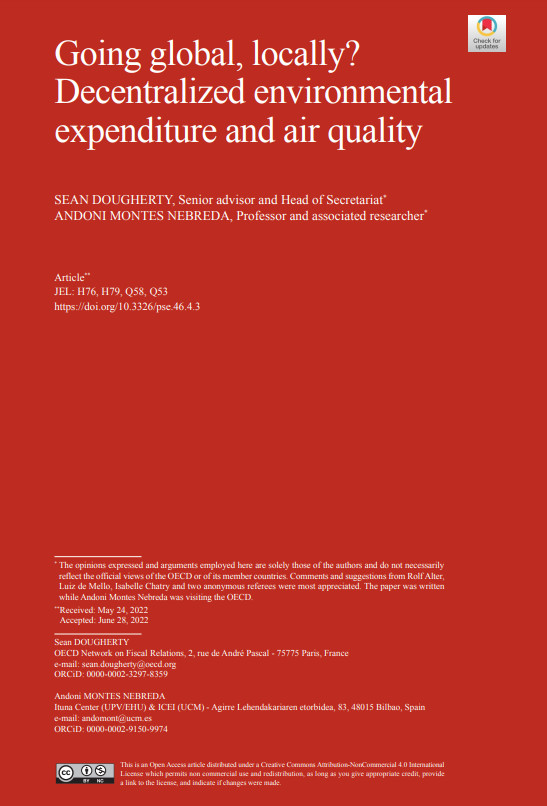Going global, locally? Decentralized environmental expenditure and air quality
DOI:
https://doi.org/10.3326/pse.46.4.3Keywords:
decentralization, air quality, local governance, environmental policy, urban agendaAbstract
Achieving more liveable cities is one of the main goals set by the Sustainable Development Goals (SDGs). According to a recent survey, most subnational governments participate in SDG implementation, especially to achieve environmental goals. Moreover, the public health concerns of COVID 19 have helped to motivate even more cities to improve local air quality. However, despite the importance of intergovernmental cooperation for the success of the SDGs, there is still limited progress at the regional and local levels, due to limited institutional capacity and doubts about electoral consequences of unevenly distributed costs. We use panel data for 2010-2019, covering 217 OECD metropolitan areas, together with consolidated environmental expenditure, and find that subnational public spending on environmental protection is more strongly associated with better municipal air quality than environmental expenditure by general governments. Moreover, environmental spending shows a relationship with reduced air pollution exposure through the mechanism of higher institutional quality.

Downloads
Published
How to Cite
Issue
Section
License
Copyright (c) 2022 Sean Dougherty, Andoni Montes Nebreda

This work is licensed under a Creative Commons Attribution-NonCommercial 4.0 International License.








